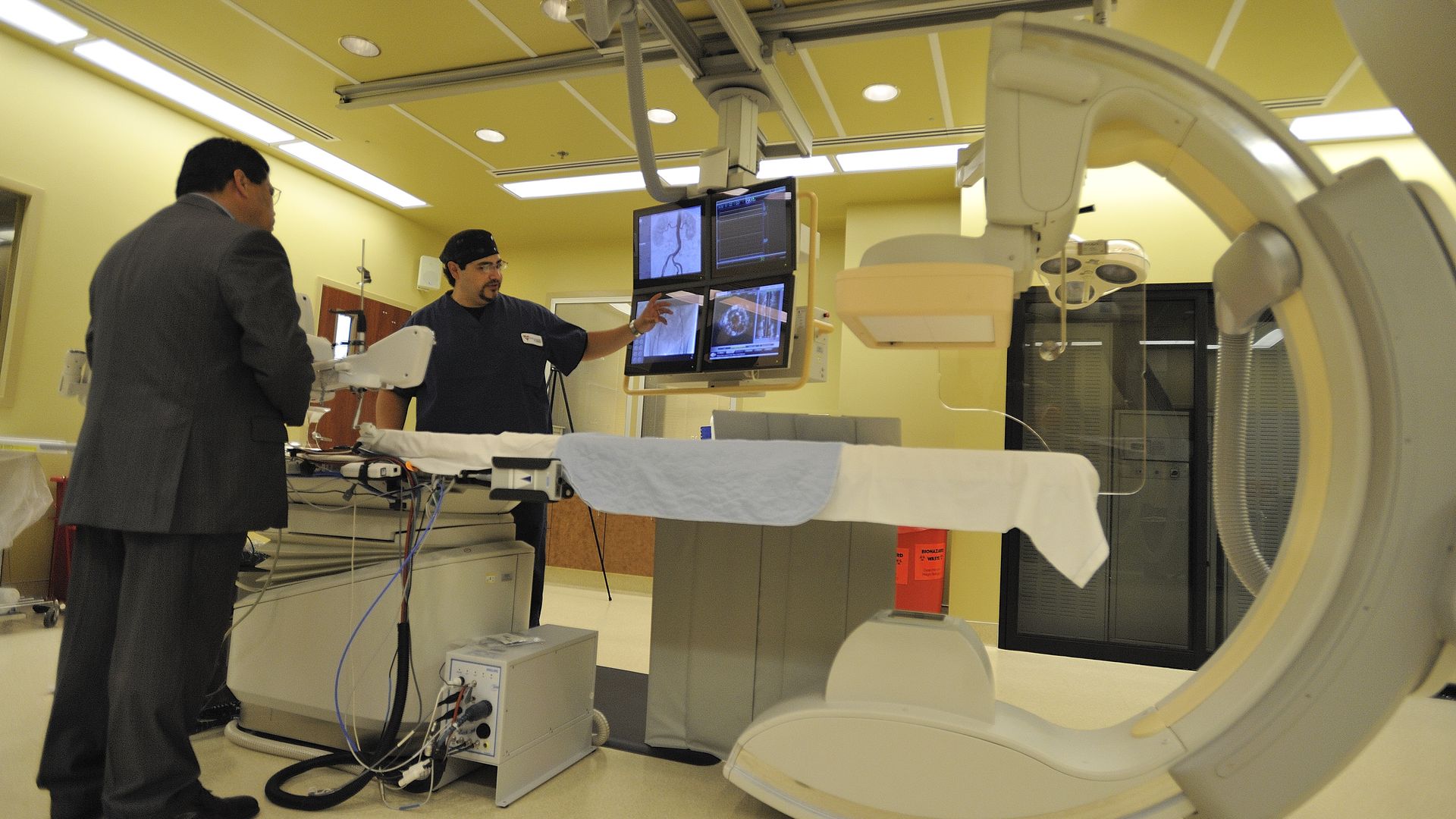May 23, 2019 - Health
Congress eyes federally funded medical claims research
Add Axios as your preferred source to
see more of our stories on Google.

A technician works in a cardiac cath lab. Photo: Jeff Gritchen/Digital First Media/Orange County Register via Getty Images
